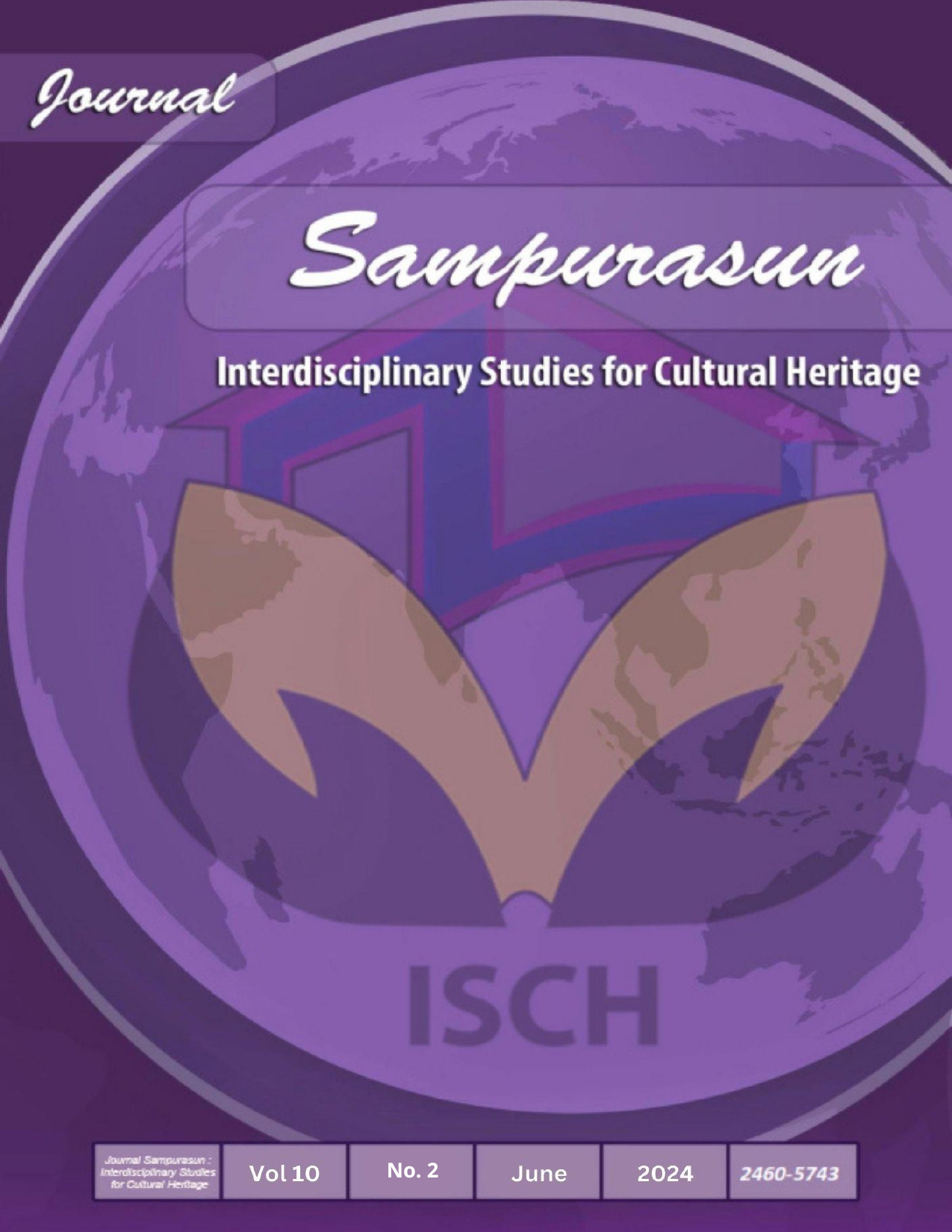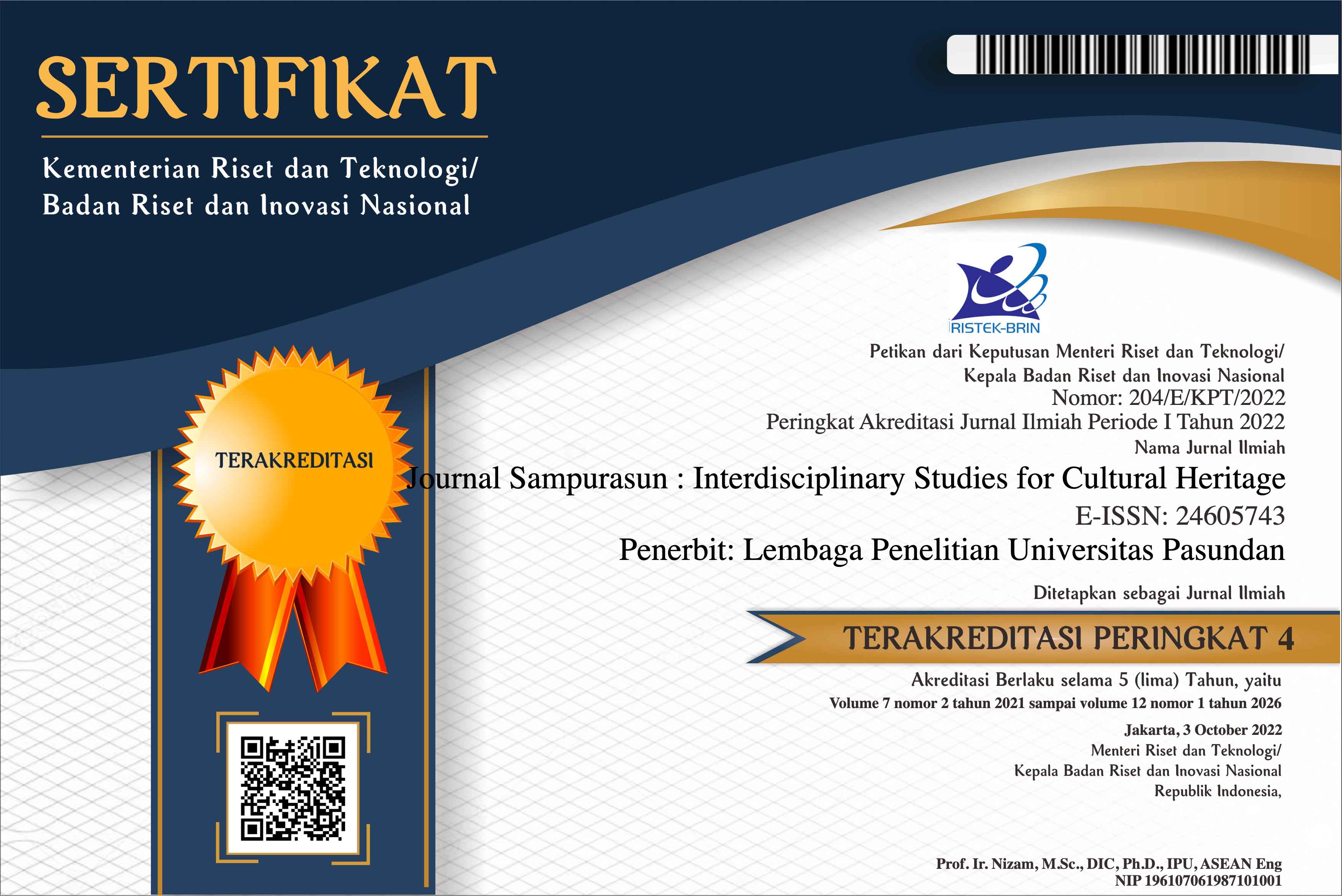MEDICAL STUDENT'S MOTIVATION AND ACADEMIC ACHIEVEMENT INCLUDING STUDENT'S BEHAVIOR IN SELECTING MEDICAL FACULTY
Keywords:
Motivation, GPA, SMMSR, open-ended questionsAbstract
Background: The university level of education serves as the basis for medical education, which is an academic education. In the selection of education, there are factors that influence, among others, motivation, location of origin, and information media. Motivation is the force that drives someone to do something; motivation is divided into intrinsic and extrinsic motivation. Motivation is one of the internal factors that can affect GPA; besides, motivation can also affect one of them: career decisions and readiness to continue studying in the field of medicine Purpose: This study aims to determine the correlation between motivation and academic achievement and the characteristics of the Faculty of Medicine students. Methods: This study used a cross-sectional approach. The sample collection technique used a total sampling technique; as many as 189 respondents filled out the SMMS-R questionnaire, open-ended questions, and requested GPA data. The data analysis used was the Spearman-Rho correlation test. Results: Based on bivariate analysis with the Spearman-rho Correlation test, there is no significant relationship between entry motivation and academic achievement with a value of p = 0.427 and r = 0.058, the average career plan of students after graduating is to become a specialist doctor as many as 91 (48.1%), the average origin of students comes from West Java Province as many as 150 and the city of Bandung as many as 34, and most of the information media used by students are websites as many as 94 (49.7%). Conclusion: There is no relationship between entry motivation and student academic achievement at the Faculty of Medicine, Pasundan University; the majority of students come from West Java Province with the origin of the city or district, namely the city of Bandung; the information media used by students is the website; and student career plans become specialists.
Downloads
References
Agustina, M. T. (2022). Low motivation pada mahasiswa tingkat akhir. Jurnal Pendidikan Sultan Agung, 2(3), 335–341.
Andarwati, P., Nuraini, S., Nugroho, A. P., Phq, X., Gdwd, H., Gdodp, G., … Phqgdvdulq, D. Q. J. (2016). motivasi dan pilihan karir mahasiswa kedokteran universitas airlangga, Surabaya. Motivasi Dan Pilihan Karir Mahasiswa Tingkat Akhir Fakultas Kedokteran Universitas Airlangga, Surabaya, 19(2), 165–171.
Bloom, N., & Reenen, J. Van. (2013). Motivasi berprestasi pada mahasiswa yang berkuliah di jurusan pilihan orang tua. NBER Working Papers, 89. Retrieved from http://www.nber.org/papers/w16019
Daulay, N. (2021). Motivasi Dan Kemandirian Belajar Pada Mahasiswa Baru. Al-Hikmah: Jurnal Agama Dan Ilmu Pengetahuan, 18(1), 21–35. https://doi.org/10.25299/al-hikmah:jaip.2021.vol18(1).5011
Duckworth, A. L. (2007). Grit: Perseverance and Passion for Long-Term Goals. Jurnal of Personalityand Social Psychology., 92, No. 6: 1087-1101.
Erickson, S., Hodgkin, S., Karasmanis, S., & Murley, G. (2018). Research and Evidence in Practice. In Research and Evidence in Practice. https://doi.org/10.26826/1007
Faradila, R., Pramono, A., & Firmansyah, M. (2020). Hubungan Motivasi Dan Strategi Belajar Terhadap Indeks Prestasi Semester Mahasiswa Kedokteran. Jurnal Bio Komplementer Medicine, 7(1), 1–7. Retrieved from http://riset.unisma.ac.id/index.php/jbm/article/view/6636
Firda, F. A., & Triastuti, N. J. (2020). HUBUNGAN TINGKAT ANSIETAS, MOTIVASI BELAJAR, LAMA BELAJAR, DAN STATUS MERANTAU DENGAN PRESTASI BELAJAR MAHASISWA KEDOKTERAN The Relation Between Anxiety Level, Learning Motivation, Length of Study and Wandering Status with Learning Achievement of Medical Student. Proceeding Book Call for Paper Thalamus: Medical Research For Better Health, 137–148.
Habsyi, F. Y. (2020). Pengaruh fasilitas belajar terhadap prestasi belajar siswa SMA Nusantara Tauro. Jurnal Pendidikan Dan Ekonomi, 2(1), 13–22.
Hasanah, U., Maria, S., & Lutfianawati, D. (2019). Hubungan Regulasi Diri dalam Belajar dengan Prestasi Belajar pada Mahasiswa Angkatan 2016 Fakultas Kedokteran Universitas Malahayati. Psyche: Jurnal Psikologi, 1(1), 78–87.
Kamil, I. R., Novitasari, A., & Arfiyanti, M. P. (n.d.). MAHASISWA DI FAKULTAS KEDOKTERAN UNIVERSITAS MUHAMMADIYAH SEMARANG THE RELATIONSHIP ENTRY MOTIVATION AND GPA STUDENT IN MEDICAL FACULTY UNIVERSITY OF. 1–10.
Kapitan, I. K., Kareri, D. G. R., & Amat, A. L. S. (2021). Hubungan Motivasi Belajar Dengan Prestasi Akademik Mahasiswa Fakultas Kedokteran Di Nusa Tenggara Timur. Cendana Medical Journal (CMJ), 9(1), 64–71. https://doi.org/10.35508/cmj.v9i1.4937
KKI. (2019). Standar Pendidikan Profesi Dokter Indonesia. Konsil Kedokteran Indonesia, 169.
Kriyantono, R. (2020). Efektivitas website perguruan tinggi negeri sebagai penyedia informasi bagi mahasiswa. Jurnal Studi Komunikasi (Indonesian Journal of Communications Studies), 4(1), 117. https://doi.org/10.25139/jsk.v4i1.1799
Kusurkar, R. A., Ten Cate, T. J., Van Asperen, M., & Croiset, G. (2011). Motivation as an independent and a dependent variable in medical education: A review of the literature. Medical Teacher, 33(5), 142–159. https://doi.org/10.3109/0142159X.2011.558539
Lisiswanti, R., Sanusi, R., & Prihatiningsih, T. S. (2015). Hubungan Motivasi dan Hasil Belajar Mahasiswa Kedokteran. Jurnal Pendidikan Kedokteran Indonesia: The Indonesian Journal of Medical Education, 4(1), 1. https://doi.org/10.22146/jpki.25259
Mona, S., & Yunita, P. (2021). Faktor-Faktor yang Berhubungan dengan Prestasi Belajar Mahasiswa. Menara Ilmu, 15(2), 117–125. Retrieved from https://jurnal.umsb.ac.id/index.php/menarailmu/article/download/2410/1890
Mustaqim, I. (2020). Pengaruh Kompetensi Dosen, Kurikulum Dan Motivasi Terhadap Prestasi Belajar Mahasiswa. Reslaj : Religion Education Social Laa Roiba Journal, 1(1), 63–75. https://doi.org/10.47467/reslaj.v1i1.67
Ngalim Purwanto, M. (n.d.). Psikologi pendidikan (24th ed.). Bandung : Remaja Rosdakarya, 2010.
Ompusunggu, H. E. S. (2020). Hubungan Antara Motivasi Belajar Dengan Prestasi Belajar Mahasiswa/i Fakultas Kedokteran Universitas HKBP Nommensen. Nommensen Journal of Medicine, 6(1), 32–35. https://doi.org/10.36655/njm.v6i1.247
Pamjaki, A. UU no. 20/2013. , (2013).
Pangestu C, M. M. S., Rahmatika, A., & Oktaria, D. (2018). Faktor-Faktor yang Memengaruhi Prestasi Akademik pada Mahasiswa Kedokteran Tahap Preklinik. Jimki, 6(2), 109–116.
PDDikti Kemendikbud. (2020). Statistik pendidikan tinggi (higer education statistic) 2020. Pangkalan Data Pendidikan Tinggi, 1–300. Retrieved from https://pddikti.kemdikbud.go.id/publikasi
Prasetyaningrum, I. D., & Marliana, E. (2020). Faktor yang Mempengaruhi Keputusan Pemilihan Perguruan Tinggi Swasta (Studi pada Universitas Muria Kudus). Jembatan : Jurnal Ilmiah Manajemen, 17(1), 61–72. https://doi.org/10.29259/jmbt.v17i1.11146
Puriani, R. A. (2017). Hubungan Penyesuaian Diri di Perguruan Tinggi dengan Indeks Prestasi Kumulatif Mahasiswa Bimbingan dan Konseling FKIP Universitas Sriwijaya. Konseling Komprehensif, 4(2), 1–7. Retrieved from https://ejournal.unsri.ac.id/index.php/jkonseling/article/viewFile/8076/4121
Rahayu, M. N. M., & Arianti, R. (2020). Penyesuaian Mahasiswa Tahun Pertama Di Perguruan Tinggi: Studi Pada Mahasiswa Fakultas Psikologi Uksw. Journal of Psychological Science and Profession, 4(2), 73. https://doi.org/10.24198/jpsp.v4i2.26681
Ravik, K. (2019). “Siaran Pers Kemenristekdikti tentang Data statistik 10 Prodi SAINTEK peminat terbanyak SBMPTN 2019.” Retrieved from https://ristekdikti.go.id/kabar/168-742%0A%0Apeserta-lulus-sbmptn-2019-di-85-ptn-seindonesia/
Riezky, A. K., & Sitompul, A. Z. (2017). Hubungan Motivasi Belajar dengan Indeks Prestasi Kumulatif Mahasiswa Program Studi Pendidikan Dokter Fakultas Kedokteran Universitas Abulyatama. Jurnal Aceh Medika, 1(2), 79–86. Retrieved from http://jurnal.abulyatama.ac.id/acehmedika
Riza, A., & Rambe, R. (2010). Korelasi Antara Dukungan Sosial Orang Tua dan Self ‐ Directed Learning pada Siswa SMA. 37(2), 216–223.
Rohmalina, W. (2016). Pisikologi Belajar. Jakarta: PT. Raja Grafindo Persada.
Salsabila, A., & Puspitasari. (2020). Faktor-Faktor yang Mempengaruhi Prestasi Belajar. Pendidikan Dan Dakwah, 2(2), 278–288.
Sardiman. (2012). Interaksi dan motivasi belajar mengajar. Jakarta: PT. Raja Grafindo Persada.
Slavin, R. E. (2018). Educational Psycology.
Syah, M. (2012). Psikologi belajar. Jakarta: Raja Grapindo.
Tamtekin Aydın, O. (2015). University Choice Process: A Literature Review on Models and Factors Affecting the Process. Yuksekogretim Dergisi, 5(2), 103–111. https://doi.org/10.2399/yod.15.008
Toding, W. R. B., David, L., & Pali, C. (2015). Hubungan Dukungan Sosial Dengan Motivasi Berprestasi Pada Mahasiswa Angkatan 2013 Fakultas Kedokteran Universitas Sam Ratulangi. Jurnal E-Biomedik, 3(1). https://doi.org/10.35790/ebm.3.1.2015.6619
Umi Fania Julianti. (2022). Prestasi Belajar Mahasiswa: Kaitannya dengan Kualitas Pengajaran Dosen. Penerbit NEM.
Yuliawan, A. (2016). Hubungan Antara Motivasi Belajar Dan Latar Belakang Pendidikan Dengan Prestasi Belajar Mahasiswa. Profesi (Profesional Islam) : Media Publikasi Penelitian, 14(1), 15. https://doi.org/10.26576/profesi.132
Downloads
Published
How to Cite
Issue
Section
License
Copyright (c) 2024 Journal Sampurasun : Interdisciplinary Studies for Cultural Heritage

This work is licensed under a Creative Commons Attribution 4.0 International License.
Copyright Notice
Authors should not withdraw their submitted papers because the withdrawal wastes voluntary works devoted by an associate editor and reviewers. But, we accept the withdrawal of a submitted paper if authors have unavoidable reasons. In the event that a manuscript is to be withdrawn from submission to Sampurasun Journal, a letter must be sent to the editorial office requesting withdrawal by e-mail (sampurasunjournal@unpas.ac.id) with its scanned PDF file, before the notification of acceptance for publication.
The withdraw request letter must include the following information. Paper ID, Paper title, Authors names, Reason why the paper must be withdrawn, and Date and signatures of all the authors (or signature of the contact author).
If only the contact author signs the letter, he/she must obtain the agreement of the withdrawal from all the other authors and the letter must include the description that all the other authors agreed the withdrawal. The journal will not withdraw a manuscript from peer review until such a letter has been received. Authors must not assume their manuscript has been withdrawn until they have received appropriate notification from the editorial office. Withdrawal of a manuscript subsequent to acceptance for publication will only be granted in the most exceptional of circumstances.
After the paper is accepted for publication, the withdrawal is not permitted in principle. The authors must always pay the charge even if the withdrawal is permitted. Any request of withdrawal that does not follow the above procedure is treated as invalid. If illegal submission, e.g., plagiarized or duplicate submission, is found for a paper, the withdrawal of the paper will never be permitted and the authors will be punished based on the rule. It is not acceptable practice to withdraw a manuscript in the event of acceptance at another journal. This constitutes dual submission. The editorial office of the other journal will be notified of your actions. In such circumstances Sampurasun ISCH may chose to impose appropriate punitive action subject.
Withdrawal Penalty
Author is not allowed to withdraw submitted manuscripts, because the withdrawal is waste of valuable resources that editors and referees spent a great deal of time processing submitted manuscript, money and works invested by the publisher. If author still requests withdrawal of his/her manuscript when the manuscript is still in the peer-reviewing process, author will be punished with paying $200 per manuscript, as withdrawal penalty to the publisher. However, it is unethical to withdraw a submitted manuscript from one journal if accepted by another journal. The withdrawal of manuscript after the manuscript is accepted for publication, author will be punished by paying US$500 per manuscript. Withdrawal of manuscript is only allowed after withdrawal penalty has been fully paid to the Publisher. If author don't agree to pay the penalty, the author and his/her affiliation will be blacklisted for publication in this journal. Even, his/her previously published articles will be removed from our online system.


















